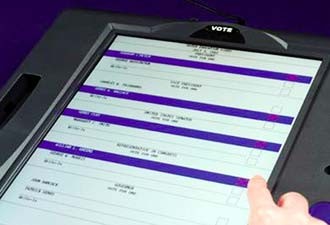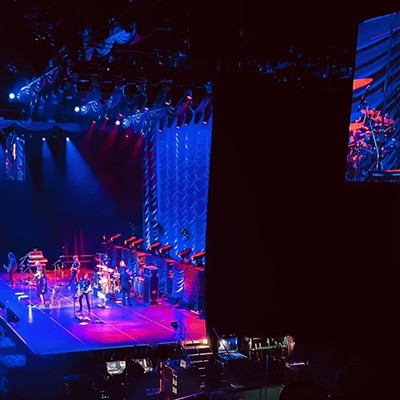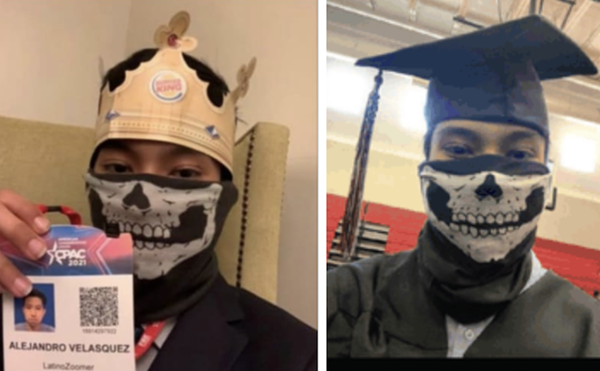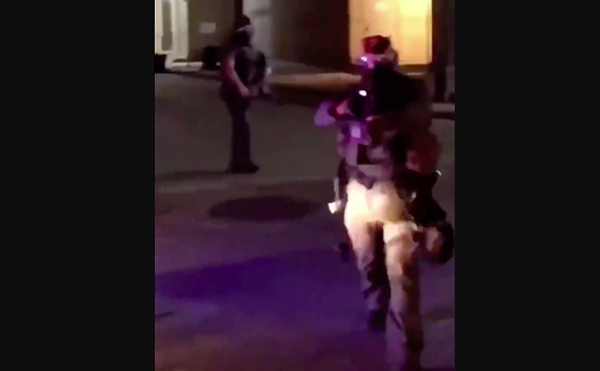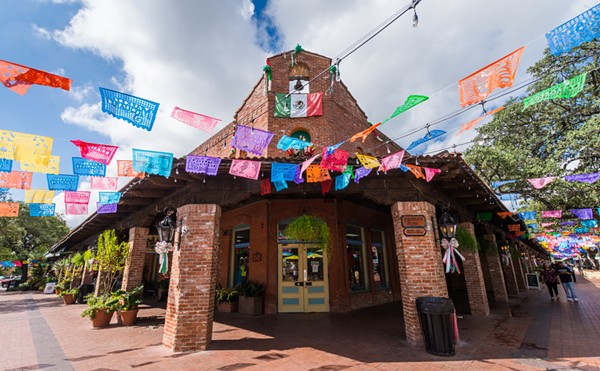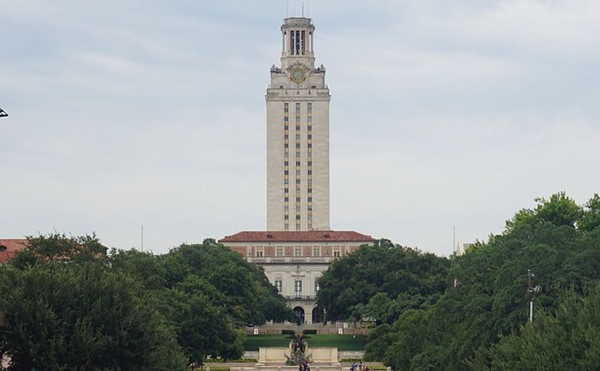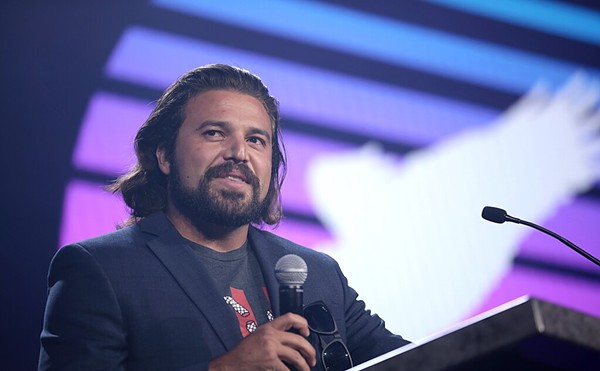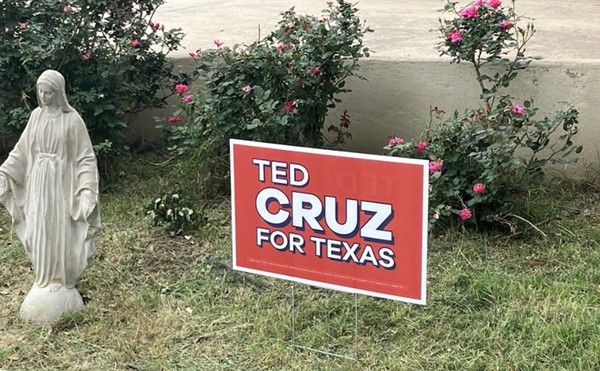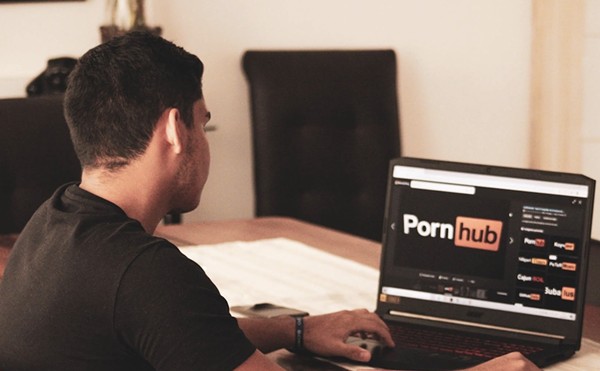|
Local, international observers prepare to monitor election Last week in Travis County, an e-mail circulated reporting that a voter who had cast a straight Democratic ticket reviewed her ballot only to find that it had registered a vote for Bush/Cheney. Luckily, she had not yet pressed the red button to cast her vote. "This is a hoax, and urban myth," said Elizabeth Yevich, executive director of the Travis County Democratic Party, who has fielded questions about the alleged incident from all over the United States, including Harvard University. "It's voter hysteria." Not quite. As reported in the Austin Chronicle on-line, Travis County election and party officials later learned that confusion over the electronic ballot design has resulted in Democratic straight-ticket voters casting their presidential ballots for Bush. Election officials consider it user, not machine error. And in Bexar County, people who rest a hand on the electronic voting machine might discover they inadvertently have chosen a candidate, and perhaps not the one they intended. Although not hysterical, many voters are worried, even cynical, about the accuracy of the voting process. The 2000 election demonstrated that the U.S. voting system is highly fallible and vulnerable to political chicanery; this year, despite additional funding appropriated under the 2002 Help America Vote Act, nationwide there have been dozens of reports of changed or trashed voter registrations, voting machine irregularities, and voter intimidation (for example, Michigan Republican State Representative John Pappageorge, told the Detroit Free Press that for the GOP to win in that state, they would need to "suppress the Detroit vote"). These types of political maneuvering and election breaches have prompted the U.S. State Department and non-governmental organizations such as Global Exchange to invite international election observers to monitor the polls. Given San Antonio's spotty election history - closed or moved polling places, malfunctioning machines, and delayed election results - as well as concerns over iVotronic machines, which don't offer a paper record of the votes cast, several local groups plan to monitor the polls on November 2. The groups, including ACORN, League United of Latin American Citizens, Neighborhoods First Alliance, and the American Civil Liberties Union, are also fielding calls about problems during early voting. In Bexar County, record turnout for early voting - more than 115,000 people as of October 24 - carries the potential for more voting problems. "We're looking for voter intimidation and voter fraud," said Dan Ramos of the San Antonio chapter of the ACLU. "People can be turned away by election judges that don't know any better." Ramos noted that during the March primary he escorted a blind couple to the polls because they hadn't received their mail-in ballot. However, the computer database showed that the ballot had been mailed. "They would not let them vote, even on a challenge ballot," Ramos recalled. When Ramos called the elections office, he said he was instructed to take the couple to that office, where they were eventually allowed to vote. There is still confusion over whether ex-felons can vote, said T.C. Calvert of Neighborhoods First Alliance. In Texas, they can, as long as they are no longer on probation or parole.
"We are not very happy with the electronic voting machines and their ability to record the vote," said George Alejos of LULAC. "I'm a staunch advocate for the paper trail." International observers, including the Organization for Security and Cooperation in Europe, haven't contacted state officials about monitoring Texas polls (although Laredo and the Rio Grande Valley, where voting irregularities were rampant during the primary, certainly need oversight), instead concentrating on problematic states such as Florida, Ohio, Missouri, and Arizona. As part of its Fair Elections project, Global Exchange, a San Francisco-based human rights group, sponsored more than 20 international observers. They arrived in mid-September and met with federal and state election officials and activist groups about election concerns and potential snafus. More delegations will return on November 2 to monitor the election. Several Missouri, Ohio, and Florida counties are allowing Global Exchange observers into either their polling or tabulation areas; others, including Franklin County, Ohio and Broward and Miami-Dade counties in Florida, have not responded to the group's formal requests. "Transparency is key to voter confidence," said Jason Mark, spokesman for Global Exchange. "If these election officials are confident in their own system, they shouldn't have any reason to keep folks out." Mark said its observers have noted several problems, including discrepancies among states in their preparedness for the election, disagreements over the validity of touch-screen voting machines, and allegations of voter disenfranchisement - especially of non-English speakers, the disabled, and minorities. If the presidential election is contested, observers could decide to stay throughout any recount or ballot challenge. And, if the 2004 election requires 36 days and a Supreme Court ruling to decide the winner, international observers could become a mainstay of American politics. "If we don't know the winner on November 3, then yes, international observers will continue to be necessary," Mark said. "Americans need confidence in the nuts and bolts of the voting system." • By Lisa Sorg To see a copy of Global Exchange's Fair Elections report and observers' recommendations on the U.S. voting system, go to www.fairelection.us/observers_report1.pdf
|

KEEP SA CURRENT!
Since 1986, the SA Current has served as the free, independent voice of San Antonio, and we want to keep it that way.
Becoming an SA Current Supporter for as little as $5 a month allows us to continue offering readers access to our coverage of local news, food, nightlife, events, and culture with no paywalls.
Scroll to read more San Antonio News articles
Newsletters
Join SA Current Newsletters
Subscribe now to get the latest news delivered right to your inbox.

